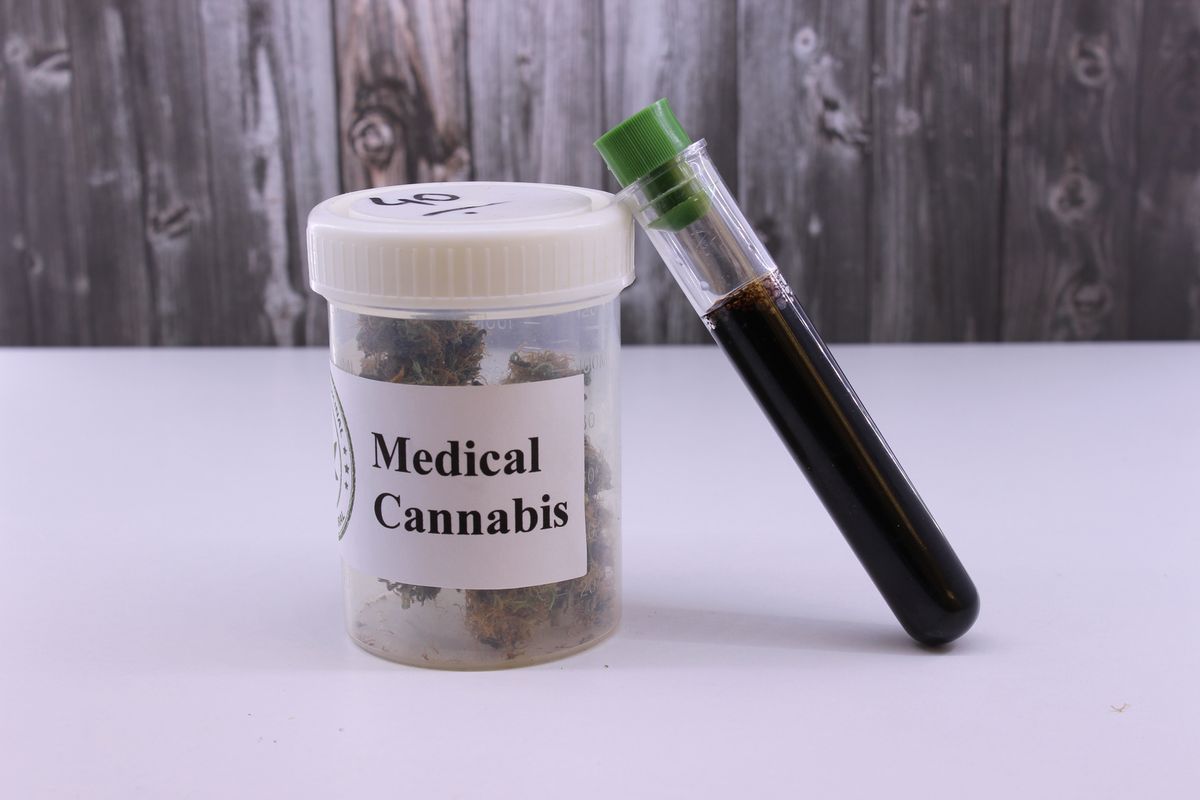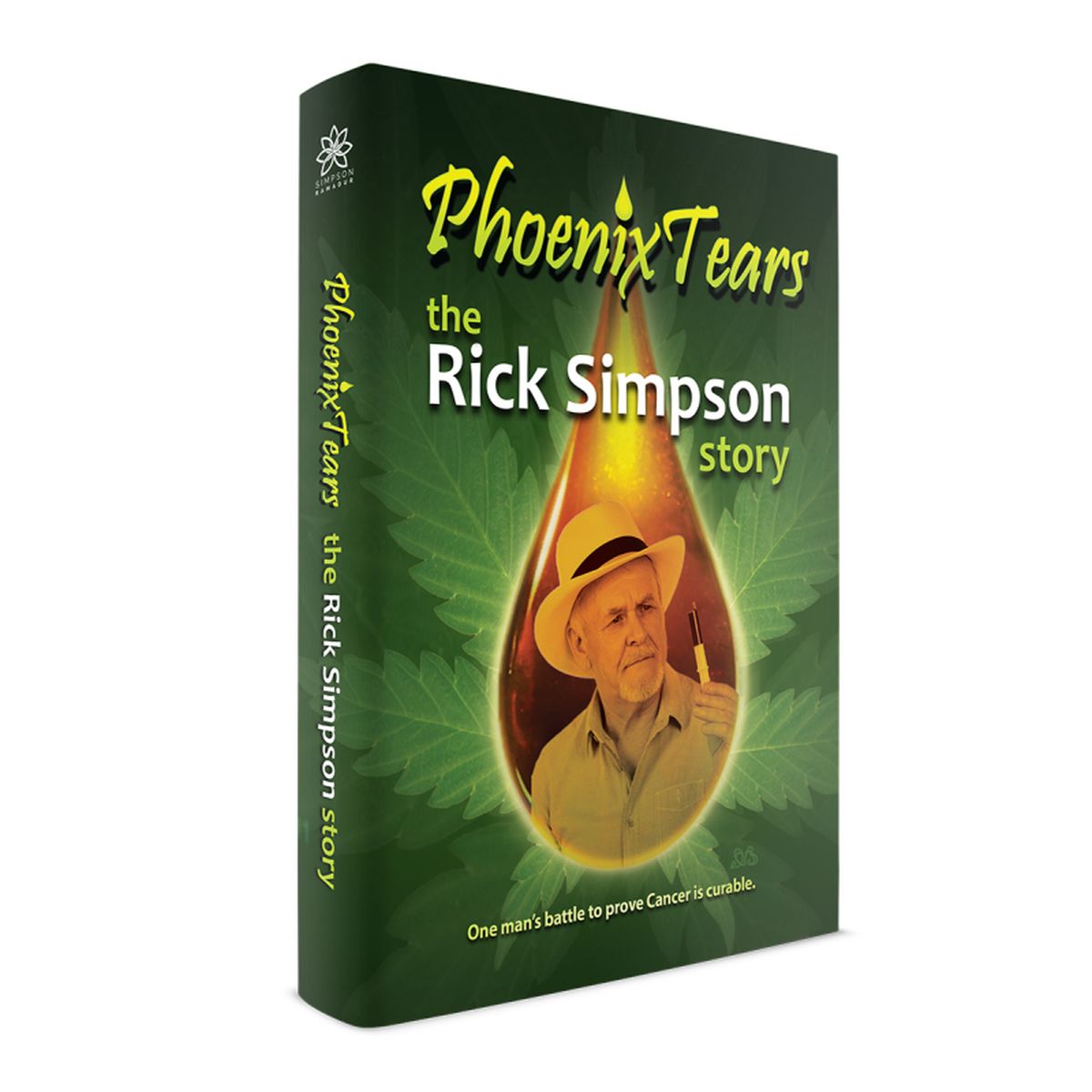Is RSO all that?
A vial of Rick Simpson oil. (Getty Images)
If you’ve ever walked into a cannabis retailer asking about medical cannabis, you may have seen or heard the term “RSO.” Those three letters are often mentioned as a potentially beneficial product for all types of conditions. But not everyone, including some budtenders, actually knows what makes this product unique.
The acronym stands for Rick Simpson Oil. Cannabis activist and “hemperoer” Jack Herer bestowed the moniker on this particular extract to honor Simpson, a cancer patient who developed and championed the use of the oil for possible benefits.
Simpson was a resident of Canada diagnosed with a form of skin cancer called basal cell carcinoma. Even though doctors regularly removed cancerous growths, they always returned, often with more vigor.
By 2002 doctors told Simpson that they had given up on being able to remove them effectively, an announcement that encouraged the avid plant hobbyist to search for a more natural and less invasive means of healing himself.
Simpson learned of a study, published in the Journal of the National Cancer Institute in 1975, in which THC was found to kill cancer cells in mice. He began to develop his method to extract cannabis oil, and found personal success in using his homemade extract topically to treat his lesions.
He applied the oil directly on his affected skin and covered it with a bandage for four days. Then, he discovered the growth had completely disappeared. Not only was Simpson shocked about how well the extract worked, but he was also dismayed that the plant used to manufacture it was legally prohibited and kept from the public.
Simpson began telling anyone who would listen that cannabis oil had cured his cancer. According to an interview he did with Telegraph, a Serbian magazine, everyone just laughed at him at first.
The mockery didn’t stop his passion for cannabis-based medicine, however. Simpson set out to personally provide his cannabis oil to cancer patients. He grew plants in his backyard, produced the oil, and gave it to patients for free.
In 2004 he expanded his educational reach by establishing his website phoenixtears.ca. He didn’t patent the oil or attempt to profit off of this endeavor. He simply wanted people in need to have access to the relief he had experienced.
His efforts came to a halt in 2009 when the Royal Canadian Mounted Police raided his home. He now makes it very clear that he cannot supply the oil to anyone anymore, but his website still has directions on how to make and administer the high-THC, full spectrum cannabis oil that he once used and advocated.
The cannabis icon, who now lives in Europe, recommends topical or edible use to activate anti-cancer proponents with cannabis extracts, although he does not deny that some users can experience therapeutic benefits for other ailments through inhalation.
While some people like making the oil themselves, various processors make and sell it at cannabis retailers. In Washington shops, RSO is often found as a thick dark material in a plastic syringe.
Patients are instructed to eat a small portion of oil – about the size of a grain of rice – three times a day. After one week at this dosage, the website recommends doubling the dose every four days for the first six weeks of treatment for any condition.
At this rate, during week five through 12 a patient will ingest one gram of RSO each day. The dosage goal is to ingest 60 grams of RSO in a 90-day period for optimal results.
With RSO costing around $35-70 a gram in Washington, self-treatment can create a real financial challenge. Few insurance companies cover this medicine, so a complete regimen may cost up to $4,000 out of pocket.
Washington residents with have medical authorization can grow a few plants at home if they want to create RSO by following Simpson’s online instructions.
Rick Simpson Oil is often touted as a cure-all and may be the first thing many budtenders hand a customer seeking general medical options, due to the strength of the THC and the vivid online testimonials shared by cancer patients.
Cara Wietstock has worked in cannabis retail and gardens across three states since 2011. She has settled in Bellingham, where she spends her free time gardening, practicing yoga, reading heady fiction, and hanging with her cats.

